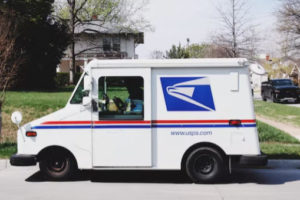The Colorado Retail Delivery Fee: An update two months after launch
The Colorado Retail Delivery Fee generated a great deal of confusion, frustration, and irritation for in-state and out-of-state retailers, sales tax professionals, and tax software companies during the race to be ready for the fee which was effective July 1, 2022.
So much fervor over a mere 27 cents designed to help fund the state’s $5-billion infrastructure plan.
The tension hasn’t eased in the nearly two months since Colorado started imposing the fee on all orders of taxable “retail” items delivered by motor vehicles within the state.

Implementation Processes and Considerations
The Colorado Retail Delivery Fee (CRDF) is a state-imposed fee (not a tax) that applies to every order (not invoice) when there is an item of tangible personal property that is delivered by the retailer or a third party via roads and the item is taxable. A “retail” transaction is not limited to what is commonly thought of as a retailer but rather includes any sale that isn’t for resale or otherwise exempt. If an order has anything taxable that is tangible, the fee applies!
The collection of the fee is the responsibility of the seller (or marketplace) and there is a requirement that the fee be charged to the customer and separately identified and listed on the invoice. There is no obligation for the customer to pay the fee if it is not charged by the seller, but they are required to pay it to the seller.
Businesses selling goods into Colorado continue to discover new challenges in implementing the fee, and in some cases, they are asking if they are required to charge it to the customer. If the price to implement is higher than remitting the fee,do they need to pass it on, or can they just pay the fee? According to Colorado, the seller is required to pass it on but at least in the near term, they won’t be enforcing that aspect of the law as long as the seller has remitted the fee to Colorado.
In a thread titled “is anyone adding the Colorado Retail Delivery Fee?” in our Sales Tax Nerd Community, one member who works as an accountant for a manufacturer said his company would not be implementing the fee as a charge to its customer because the cost to incorporate it into its selling system would be greater than the business the company does in Colorado. For now, this will be ok, but we don’t know how long the state will be lenient.
“I am sure as other states adopt, we will have to at that point,” he added. So far, we have not seen any hints of other states following in Colorado’s delivery-fee footsteps. We certainly hope no other state comes up with this type of fee!
While some retailers have found the implementation of the retail delivery fee unaffordable, others are discovering it is also unworkable. It isn’t just a tax engine, and compliance solution that needs to be modified but selling systems must be able to separately list the fee with the appropriate label on the invoices. It is also recommended that the fee is separately accounted for in the seller’s financial records. We’ve come across some selling systems as well as tax engines that are not supporting the fee at all. In these cases, the seller might need just to create a new “item” that can be added to all affected invoices. This may work for sellers that manually create invoices but in an ecommerce channel, unless you can automate the addition of the line item, it just isn’t feasible.
Although the state has stipulated that the CRDF is not subject to the CO state and state-administered sales tax, home rule localities can tax the fee under their sales tax provisions. Some have specifically stated it will be, while others are still evaluating. Luckily, the City/County of Denver just passed legislation exempting the fee from its sales tax.
We recommend evaluating to ensure your system is set up appropriately to handle the retail delivery fee so that it can be filed on the new CRDF return (Form DR 1786).
Once you figure out how to charge and collect the fee, the next step is remitting it to the state. Colorado decided to be “helpful” by automatically registering every company that was registered for sales tax already as of June 30, 2022. Any new sales tax registrations filed after July 1, 2022 will include the CRDF as an option to add to the registration.
But what if you are not subject to the CRDF because you don’t do any deliveries or only sell services or digital goods? The advice from Colorado is to not file a return at all – and of course, that means you will get notices, but they will waive all the penalties. They are going to wait eight months and if a business failed to file for all eight months, the state will then cancel the account. Or you can contact Colorado and have them cancel it for you now. If you file a $0 return, the state will assume you are subject to the fee and keep your account open. Our recommendation is if you aren’t subject to the fee – proactively cancel your account!

Is the future of the Colorado Retail Delivery Fee in doubt?
Even one of the co-sponsors of the law that created the retail delivery fee is having second thoughts, according to a story by Denver Business Journal Senior Reporter Ed Sealover on August 17, 2022.
Sealover writes that Colorado Senate President Steve Fenberg “admitted he has heard a lot of consternation,” specifically about the mandate that the 27 cents be listed separately on customer receipts. Fenberg said he would be willing to “rescind some of the fee’s most vexing provisions.”
Colorado residents are beginning to voice their displeasure in seeing the additional 27 cents added to their receipts while inflation, shipping wars, and labor issues in the wake of a global pandemic have combined to increase the cost of most consumer goods. Retailers must collect the fee, but the actual charge goes to the consumer.
Blogger Ari Armstrong of Complete Colorado wrote about feeling gouged after the recent delivery of “The Best of A Flock of Seagulls.” Armstrong found the CD on sale at Amazon.com for $4.99, but upon receipt, discovered that the 42 cents in sales tax plus the additional 27 cents listed as “regulatory fees” amounted to a 14-percent tax on his purchase, raising the actual price to $5.68.
In the title of his August 2, 2022 blog, Armstrong claims the “Delivery tax disguised as a ‘fee’ adds insult to injury.” He also quotes a July 10 news report by Denver NBC affiliate KUSA explaining the effect of the fee charged to Colorado residents as “occurring at a time of record-setting inflation, spiking home prices, and a general sense of how unaffordable living in Colorado has become.”
Challenges to the state bill that created the retail delivery fee have already been filed, including a lawsuit by business groups and a state senator highlighted in an August 8, 2022, National Law Review article entitled “Colorado’s Retail Delivery Fee.” The suit claims that Senate Bill 21-260 (CRDF) is in violation of an initiative that passed in 2022 with 53% approval of state residents and “requires voters to approve new state enterprises when the enterprise’s projected or actual revenue from fees and surcharges is greater than $100 million within its first five years.”
Will we see this repealed? Or delayed? Everything the Colorado Department of Revenue has published indicates that they can’t delay the effective date, but they will be lenient on the enforcement. There are certainly plenty of reasons that it could be repealed, including the added burden on interstate commerce and specifically on remote sellers. We’ll keep an eye on this and update everyone if something gains traction.

Helpful Resources to Ease the Pain
While we wait to see if and how the Colorado General Assembly makes adjustments to the retail delivery fee or if the courts uphold challenges to the bill that created it, there is some good news for companies attempting to comply.
First, the return isn’t complex. It is simply a flat fee multiplied by how many orders were delivered into Colorado. We know of sales tax teams that have completed the returns themselves while waiting for their companies’ software solutions to catch up.
Companies that are at least trying to comply by collecting and remitting the fee can also expect some lenience. During an August 4, 2022, Q&A webinar on the retail delivery fee, Colorado Department of Revenue Tax Division members eased fears by confirming they would not go after retailers who are making a good-faith effort to get on board and file appropriately.
The Colorado Department of Revenue has made multiple resources available to help, including the slide deck from the Q&A webinar. Complete information can be found on the dedicated web page regarding the CRDF. We found the webinar helpful and encourage you to watch the video archive when it is available the Colorado Department of Revenue YouTube website. The department said it expects the video to be posted during the week of August 29, 2022.
